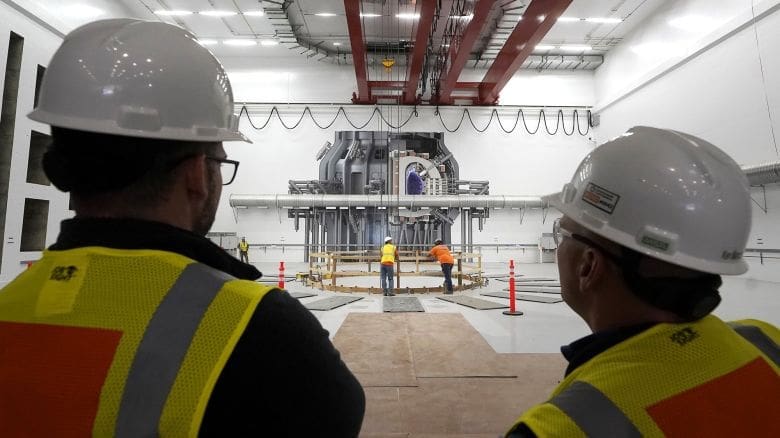The global community is facing unprecedented challenges with climate change, which necessitates urgent and innovative solutions. From groundbreaking nuclear fusion technologies to carbon capture initiatives, new strategies are emerging that promise to mitigate the environmental impacts of human activities.
In a significant development, the United States anticipates the launch of the world’s first grid-scale nuclear fusion power plant. This project represents a major step forward in the quest for clean and unlimited energy, offering a promising alternative to traditional fossil fuels.
Meanwhile, a young entrepreneur has taken the lead in tackling carbon emissions from maritime shipping, highlighting the industry’s vital role in the climate equation. This initiative reflects a broader recognition of the need for diverse approaches in reducing atmospheric carbon levels.
On another front, an ambitious plan to refreeze the Arctic is showing encouraging outcomes, although scientists caution about the potential risks involved. This controversial proposal underscores the complexities involved in geoengineering solutions.
Norwegian sheep herders contribute significantly to conserving coastal heathlands, demonstrating how traditional practices can complement modern environmental strategies. Such grassroots efforts are essential in the broader climate action landscape.
Additionally, scientists are leveraging artificial intelligence to address critical challenges in the pursuit of limitless clean energy. These efforts reflect the growing intersection of technology and environmental science.
Globally, major economies have committed to phasing out coal by 2035, a commitment that marks a significant shift in energy policies, albeit with caveats that may impact its execution.
The Biden administration has introduced new funding for solar energy and proposed the establishment of an American Climate Corps, signaling a stronger commitment to sustainable energy and climate education.
Recent research indicates unintended consequences of efforts to eliminate certain pollutants, which may have inadvertently impacted global temperatures. Such findings highlight the complexity of environmental interventions.
A potential game-changer in ocean-based carbon capture is raising questions among scientists, who stress the need for careful assessment of ecological impacts before widespread implementation. This underscores the importance of balancing innovation with environmental caution.
Emerging technologies in nuclear reactors could herald a new era for the industry, with the United States heavily investing in these advancements.
The discovery of rare metals in coal waste presents an opportunity for cleaner energy production, yet also introduces challenges in extraction and processing.
As the world continues to warm at an alarming rate, scientists are actively investigating the underlying causes to develop more effective mitigation strategies.
Innovative recycling efforts in the footwear industry demonstrate how circular economy principles can address waste issues, showcasing the potential for sustainable practices across various sectors.
Addressing climate change requires a multidimensional approach that combines technological innovation, policy shifts, and grassroots participation. As these diverse solutions illustrate, the path forward involves both reassessing existing practices and embracing new technologies to create a sustainable future.














